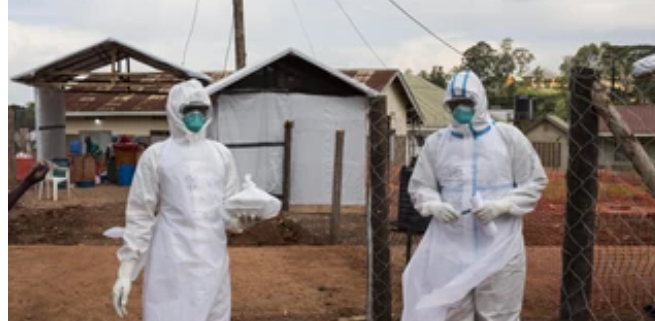The outbreak began in September in a rural area of central Uganda and spread to Kampala, a city of over 1.6 million people, thanks to a man who came from the Kassanda district to seek medical treatment and later died.
In a tweet, Health Minister Jane Ruth Aceng stated that seven of the nine people who tested positive on Sunday were family members of the man who died and were from the Masanafu neighborhood of Kampala.
She also mentioned a health worker who treated the man and his wife in a private clinic.
“Fellow Ugandans, let’s be vigilant. Report yourself if you have had contact or know of a person who has had contact,” Aceng said in her tweet.
According to Emmanuel Ainebyoona, a spokesperson for the Ministry of Health, all of the patients in Kampala were isolated when they became symptomatic, reducing the possibility of them spreading the virus.
Ebola spreads through contact with an infected person’s bodily fluids.
According to the health ministry and the World Health Organization, there have been over 90 confirmed and probable cases in Uganda since the outbreak began, with at least 44 deaths.
The virus circulating in Uganda is the Sudan strain of ebola, for which no vaccine has been developed, as opposed to the more common Zaire strain that spread during recent outbreaks in neighboring Democratic Republic of the Congo.
Ebola typically kills roughly half of those infected.
It causes severe weakness, muscle pain, headaches, a sore throat, vomiting, and diarrhea.



















